Public Libraries, Public Policies, and Political Processes
Public Libraries, Public Policies, and Political Processes
Serving and Transforming Communities in Times of Economic and
Political Constraint
Paul T. Jaeger, Ursula Gorham,
John Carlo Bertot, and Lindsay C. Sarin
ROWMAN & LITTLEFIELD
Lanham Boulder New York Toronto Plymouth, UK
Published by Rowman & Littlefield
4501 Forbes Boulevard, Suite 200, Lanham, Maryland 20706
www.rowman.com
10 Thornbury Road, Plymouth PL6 7PP, United Kingdom
Copyright 2014 by Rowman & Littlefield
All rights reserved. No part of this book may be reproduced in any form or by any electronic or mechanical means, including information storage and retrieval systems, without written permission from the publisher, except by a reviewer who may quote passages in a review.
British Library Cataloguing in Publication Information Available
Library of Congress Cataloging-in-Publication Data
Jaeger, Paul T., 1974
Public libraries, public policies, and political processes : serving and transforming communities in times of economic and political constraint / Paul T. Jaeger, Ursula Gorham, John Carlo Bertot, and Lindsay C. Sarin.
pages cm
Includes bibliographical references and index.
ISBN 978-1-4422-3346-1 (pbk. : alk. paper) ISBN 978-1-4422-3347-8 (electronic)
1. Public librariesPolitical aspectsUnited States. 2. Public librariesGovernment policy
United States. 3. Public librariesUnited StatesFinance. 4. Libraries and societyUnited States. I. Gorham, Ursula, 1975 II. Bertot, John Carlo. III. Sarin, Lindsay C. IV. Title.
Z731.J34 2014
027.473dc23
2014001961
 TM The paper used in this publication meets the minimum requirements of American National Standard for Information Sciences Permanence of Paper for Printed Library Materials, ANSI/NISO Z39.48-1992.
TM The paper used in this publication meets the minimum requirements of American National Standard for Information Sciences Permanence of Paper for Printed Library Materials, ANSI/NISO Z39.48-1992.
Printed in the United States of America
List of Figures
List of Tables
Preface
In 2005, Glen Holt penned an editorial in Public Library Quarterly that strongly encouraged readers to reflect on the reasons that the quality and capacities of public libraries are not viewed as critical infrastructure at the local level or as a matter of national interest at the federal level. The editorial leaves these questions unanswered, but there is one area that accounts for much of the situation he identifies. In large measure, the answers to those questions can be found within the policy and political processes that affect public libraries and the choices made by the library profession in relation to policies and politics.
The amount of funding and other support for a public library primarily depends on local and state policies and politics, while the parameters within which libraries operate as social institutions are heavily driven by national policies and politics. The political and policy decisions that impact public libraries are inexorably linked to the perceptions of libraries among decisions makers and members of the public, as well as the ways in which public libraries choose to represent themselves to the world around them. Public libraries tend not to fare well in the political and policy processes, for some reasons beyond their control and for some reasons that are their own creation.
Drawing on original research by the authors and a wide range of resources from across the fields of library science, governance, public policy, education, and other related areas, this book examines the complex position of public libraries within policy and politics in the United States. Traditionally, these areas have been badly neglected by library scholarship and insufficiently considered in library missions and advocacy efforts. If the public library is to continue to meet the enormous number of community needs that it now fulfills, and if it is to continue to exist as an institution of the public good that is publicly funded, the attitudes toward and depth of engagement with policy and politics must change among public librarians, professional organizations, and scholars.
In the abstract, public libraries seem like they should be in a position of greater strength than ever in terms of public perception and political support. Public libraries provide digital literacy education and guarantee access to technology and the Internet, ensuring that everyone in the community can participate in e-government (digital communications between citizens and government), online education, job seeking, and myriad other ways in which the Internet is now central to daily life for most people. In the majority of communities, the public library is the only place where free public Internet access is available. Public libraries have proven central to emergency response and recovery in communities affected by disasters all around the nation in the past decade. Public libraries are partnering with community organizations, nonprofits, and other local government agencies to create services that would never have been possible, such as programs that enable people living in food deserts to order and pick up fresh groceries at the library. Many library resources are now offered on an anytime, anywhere basis through their websites or via mobile-enabled services, with no trip to the library necessary.
And these are just examples of major innovations in what public libraries have regularly performed in the past fifteen years. Librarianship has long been one of those professions in which change is most drastic (Shera, 1963, p. 313), yet it has not wavered in its commitment to its communities through the changes. In fact, the past fifteen to twenty years have seen a dramatic shift in user-centered and sometimes user-created innovation. Public libraries still serve as a truly public space where community groups can meet, where children learn to love to read and learn through story hours, and where physical and digital books, reference materials, magazines, videos, music, databases, and even musical instruments, seeds for planting vegetable gardens, and cake pans for childrens birthday parties, can be borrowed at no cost.
Public libraries remain a lifeline to people in need of social services, job seekers, new immigrants, and so many other populations that have few other places to turn. The economic downturn of the past five years has demonstrated the value of public libraries to their communities, particularly as they assist the public to find jobs, gain digital literacy skills, engage with governments, and access technologies and resources. As governments shrank, public libraries stepped in to fill the voidand the needleft behind by fewer resources and capacity. Governments may have shrunk, but the need for assistance in difficult economic times increased.
The results of a national survey by the Pew Internet and the American Life Project released in January 2013 demonstrate the depth of attachment that members of the public have for their public libraries. Among Americans aged sixteen and older, an astounding 91 percent believe that public libraries are important to their communities, and 76 percent say public libraries are important to their families (Zickuhr, Rainie, & Purcell, 2013). In the past year, 59 percent of respondents to the survey had visited a public library in person and/or online. The survey results also reveal a large problem for public libraries in terms of letting community members, politicians, and policy makers know what they contribute to their communitiesonly 22 percent of respondents were familiar with most or all of the services offered by their public library.
Having overwhelming public endorsement and successfully serving their communities needs seem to do public libraries little good in the arena of politics and policy making. When local communities have to cut spending, libraries are usually suggested as a great place to save money as part of austerity programs. Most libraries have suffered fairly significant, permanent cuts over the past few years. Suggestions for closing them altogether abound, with Google often being identified as already having made libraries obsolete. At the national level, the federal government has been creating an array of laws that simultaneously create substantial burdens for libraries and limit the information that they can provide to their patrons. Governments at all levels have embraced a governance philosophy that emphasizes the privatization of public goods whenever possible, with those goods that cannot readily be privatized needing to demonstrate clear economic contributions. Altogether, this is not a political and policy-making environment that will likely be beneficial to public libraries.
Next page
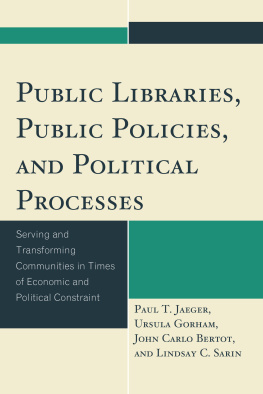
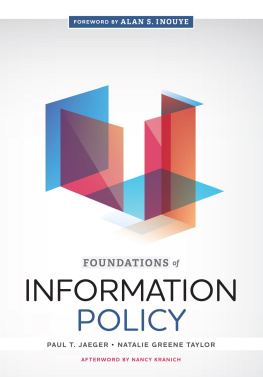

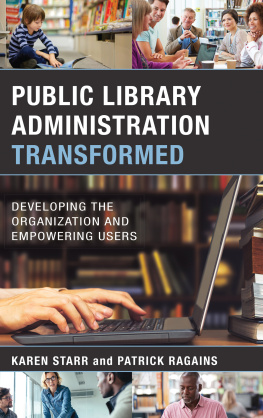
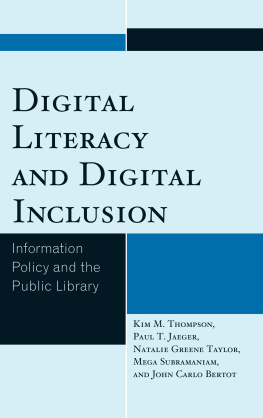
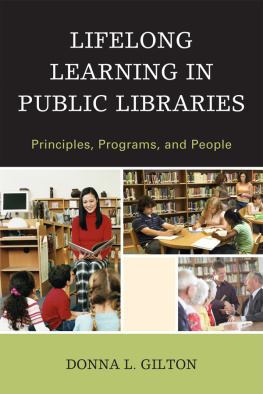
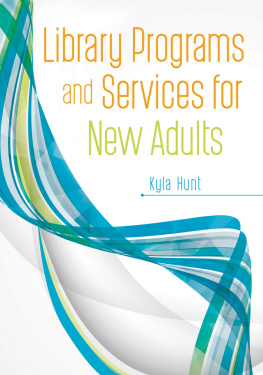
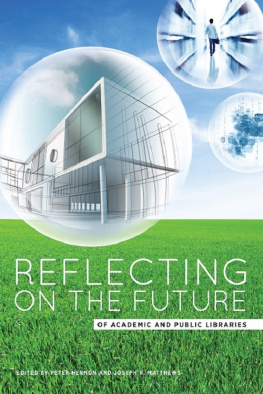

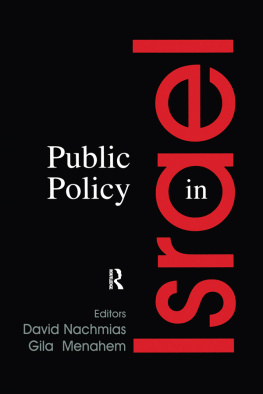
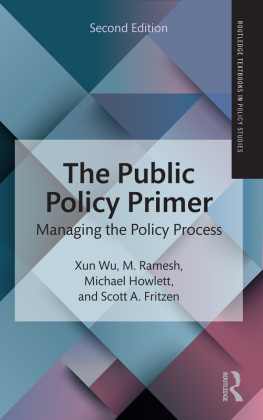
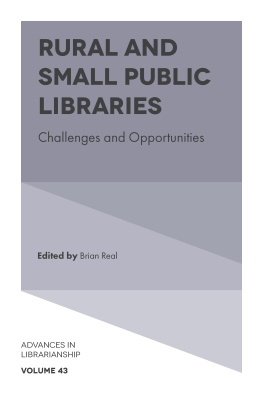
 TM The paper used in this publication meets the minimum requirements of American National Standard for Information Sciences Permanence of Paper for Printed Library Materials, ANSI/NISO Z39.48-1992.
TM The paper used in this publication meets the minimum requirements of American National Standard for Information Sciences Permanence of Paper for Printed Library Materials, ANSI/NISO Z39.48-1992.